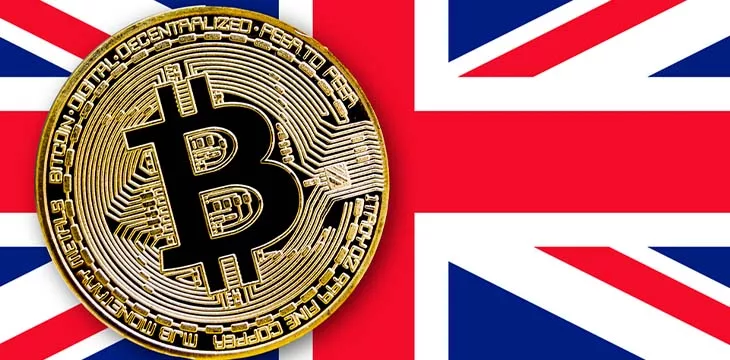|
Getting your Trinity Audio player ready...
|
On Wednesday, The U.K.’s Treasury Committee released a report urging the government to regulate digital asset activity as gambling, not financial services.
In a U.K. Treasury report published May 17, the U.K. Treasury Committee recommended that trading and investment activity in BTC, Ether, and other “unbacked cryptoassets” should be regulated as gambling rather than financial services, under the principle of “same risk, same regulatory outcome.”
The U.K.’s Treasury Committee, formally known as the House of Commons Treasury Committee, is responsible for scrutinizing the policies and actions of the Treasury, which is the government department in charge of economic and financial matters in the United Kingdom.
In the Committee’s report, titled “Regulating Crypto,” it suggested that consumer speculation in unbacked digital assets, such as BTC and Ether, is an area of particular concern and that “the Government needs to take a different approach in order to better protect consumers from harm.”
The different approach that the Committee recommends is to regulate the industry as gambling:
“Unbacked cryptoassets have no intrinsic value, and their price volatility exposes consumers to the potential for substantial gains or losses, while serving no useful social purpose. These characteristics more closely resemble gambling than a financial service, an impression reinforced by the evidence we have received of consumer behavior.”
The Committee said this approach might be preferable, as it had concerns that regulating retail activity in unbacked digital assets as a financial service would create a “halo effect,” leading consumers to believe it is “safer than it is, or protected when it is not.”
The status quo
Currently, in the U.K., the Financial Conduct Authority (FCA) has oversight to check that digital asset firms have effective anti-money laundering (AML) and counter-terrorist financing (CTF) procedures, but digital assets themselves remain largely unregulated.
In January 2022, the U.K. government signaled its intention to regulate digital asset advertising and promotions; legislation to this effect was laid in Parliament in March this year. In April 2022, the Government announced it would introduce regulation of certain stablecoins in the Financial Services and Markets (FSM) Bill, currently working its way through parliament.
It’s unclear how these previous plans would be affected if the Committee’s recommendations were to be taken up by the Treasury. In the case of AML/CTF checks and promotions, the responsibility for enforcing standards in the digital asset industry would fall on the U.K. Gambling Commission; in the case of stablecoins, it’s likely at least certain assets would not fall under the Committee’s description of ‘unbacked crypto assets,’ and so the FSM bill would be unaffected.
Industry response
The initial response to the report has been a frosty one from the industry. In a statement Wednesday, trade body CryptoUK stated it “strongly disagrees with the Treasury Select Committee’s conclusion, and we are both concerned and disappointed by these claims which are unhelpful, false, fundamentally flawed and unsubstantiated.”
Ian Taylor, Board Advisor at CryptoUK, said the Committee’s claim that digital asset activity is more akin to gambling “is in direct conflict” with previous Treasury proposals to bring the industry’s activities “into the existing financial regulatory perimeter.”
Taylor also noted that “professional investment managers see Bitcoin and other cryptoassets as a new alternative investment class – not as a form of gambling.”
The concern, from CryptoUK at least, appears to be that the Committee’s fairly damning assessment of the value of digital assets and the risks involved in trading them might signal a shift in thinking amongst U.K. lawmakers, a move away from plans to make the U.K. a “global hub” for digital asset technology.
Prime Minister Rishi Sunak said in April 2022 when he was Chancellor of the Exchequer:
“It’s my ambition to make the UK a global hub for cryptoasset technology… This is part of our plan to ensure the UK financial services industry is always at the forefront of technology and innovation.”
Since then, the Crypto winter of 2022 has taken its toll on the industry, and perhaps also on lawmakers’ inclinations towards it.
Evidence for this could be gleaned from the Treasury Committee’s report conclusion, which urged the Government to “seek to avoid expending public resources on supporting cryptoasset activities without a clear, beneficial use case.”
Watch: Using blockchain tech for data integrity

 02-26-2026
02-26-2026 




